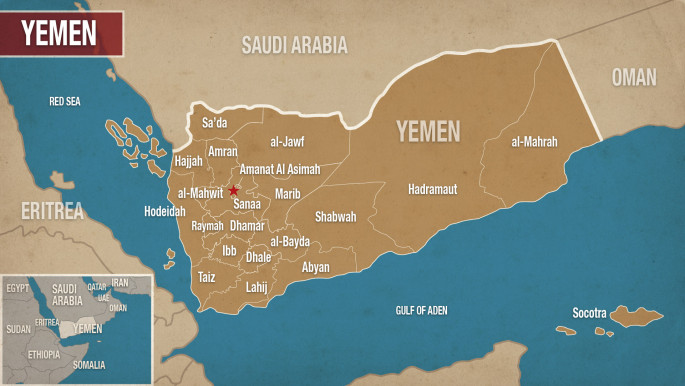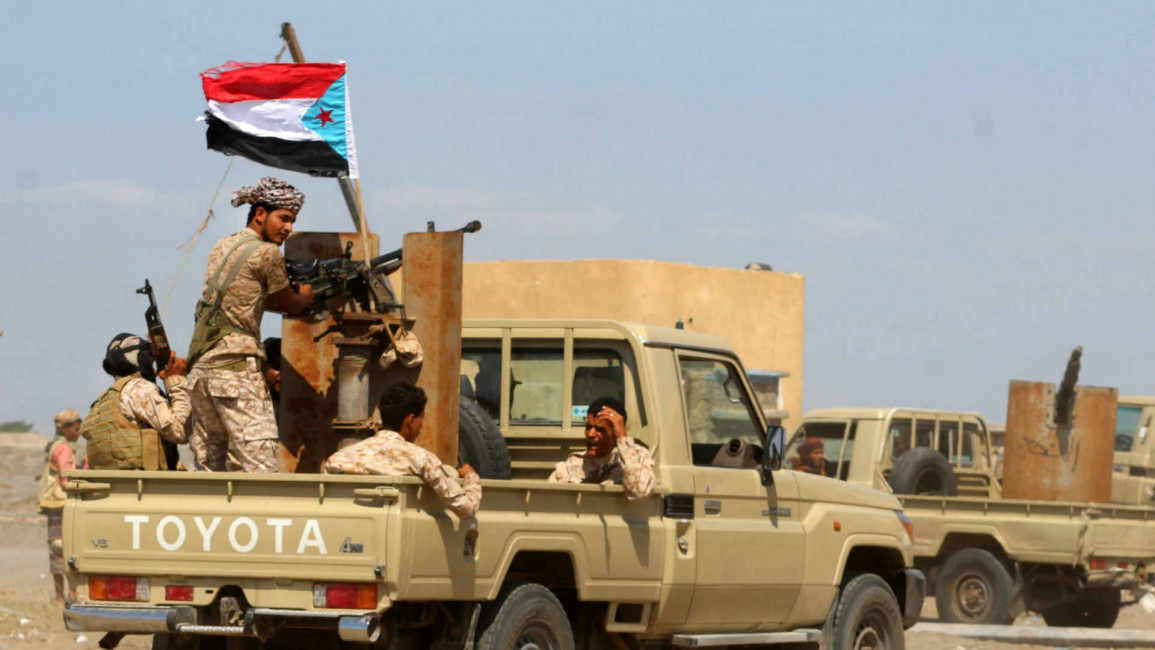Follow us on Twitter and Instagram to stay connected
Southern separatists withdraw from Riyadh agreement committees as Yemen's war drags on
Southern separatists withdraw from Riyadh agreement committees as Yemen's war drags on
Southern separatists in Yemen have pulled out of joint committees tasked with implementing the Riyadh agreement.
3 min read
Southern separatists reached an agreement with Yemen's government in November [AFP/Getty]
Southern separatists in Yemen have withdrawn from a key facet of the agreement it signed with the government in November, a further blow to those seeking a wider deal to end years of war.
The Separatist Transitional Council (STC) has pulled out of joint committees working to implement the Riyadh agreement, a STC spokesperson told Reuters.
Yemen's conflict erupted in 2014 when the government was forced out of the capital Sanaa by Iran-aligned Houthi rebels, triggering a Saudi-led military intervention.
In August, trouble re-erupted on a separate front, as southern secessionists seized control of the city of Aden, the internationally recognised government's temporary capital.
The UAE - a key part of the Saudi-led coalition helping fight the Houthis in Yemen's main conflict arena - trained and remains close to separatist troops, signalling rifts within the Gulf powers' intervention.
In a bid to end the "civil war within a war", Saudi Arabia brokered a power-sharing deal with the Southern Transitional Council (STC) under which the government would return to Aden.
The Riyadh Agreement signed on 5 November also stipulated the creation within 30 days of a new 24-member cabinet with equal representation for the southerners.
 |
But the agreement has been difficult to implement, and Wednesday's announcement by the STC signals a further blow to its execution.
Salim al-Awlaqi, a member of STC's presidential council, said the move was in protest against violence in Shabwa which it blames on the Islamist Islah party, Reuters reported.
The Islah party is closely linked to Yemen's internationally recognised government and in Shabwa, forces loyal to Hadi and southern forces continue to clash.
The Yemeni government and southern separatists also failed to meet a deadline to establish a power-sharing government at the start of December.
Yemen's prime minister Maeen Abdulmalik returned to the city in November but the new cabinet has yet to materialise, along with other key reforms including integrating secessionists into a central command structure.
The two sides say they are committed to the Riyadh Agreement but have traded accusations over who is responsible for the failure to meet the deadline to form a new government.
|
STC spokesman Nizar Haitham said in December - after failling to secure a government - that Yemen's government was "deviating" from the agreement and mobilising its troops in the south, an accusation the government denied.
But an STC official also told AFP in December that work to implement the Riyadh Agreement was ongoing and that there has been "significant progress" in implementing military and security arrangements.
"Starting next week, we'll begin steps in implementing what was agreed on," this source said in a written statement without elaborating.
According to government spokesman Rajih Badi, the secessionists are the ones failing to abide by the treaty.
He said that government military movements in the south are in line with the Riyadh Agreement and in coordination with the Saudi coalition, which continues to lead the anti-Houthi camp comprised of both government and secessionist forces.
"This is a classic case of an agreement being easy to sign but near impossible to implement," Elisabeth Kendall, Yemen expert and senior research fellow at Oxford University, told AFP.
Other parts of the deal, including placing forces from both sides under the authority of the defence and interior ministries, have also not been fulfilled.
Read more: Yemenis face another year of war, and callous western silence
The unrest in the south distracted the Saudi-led military coalition from its battle against the Houthi rebels.
The lack of concrete progress since the deal was signed comes as a blow to those hailing it as a stepping stone towards ending the wider conflict, described by the UN as the world's worst humanitarian crisis.
The war in Yemen has killed tens of thousands of people and driven millions to the brink of famine.
 |


![Minnesota Tim Walz is working to court Muslim voters. [Getty]](/sites/default/files/styles/image_684x385/public/2169747529.jpeg?h=a5f2f23a&itok=b63Wif2V)




![Debris near Rafic Hariri International Airport [Getty]](/sites/default/files/styles/image_330x185/public/2176162423.jpeg?h=a5f2f23a&itok=MCSK9mkM)
![An Israeli air strike on Jabalia killed teenage journalist Hassan Hamad [Screengrab/X]](/sites/default/files/styles/image_330x185/public/2024-10/hassan%20hamad1.jpg?h=c12e0b96&itok=Rd_dyCVp)
